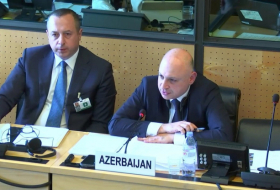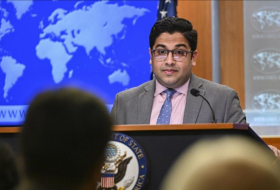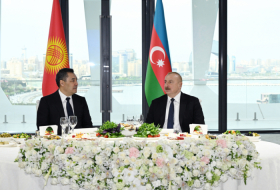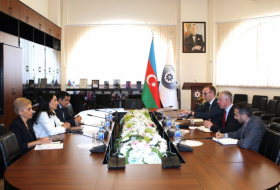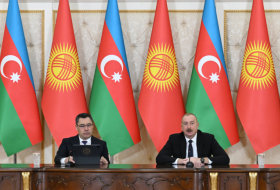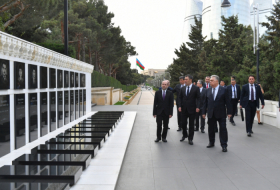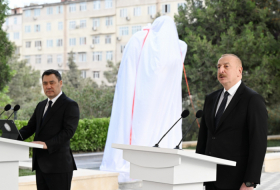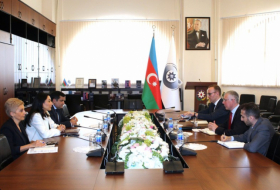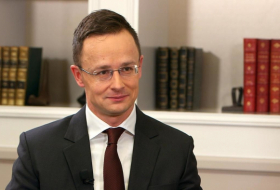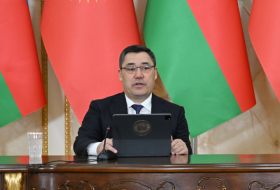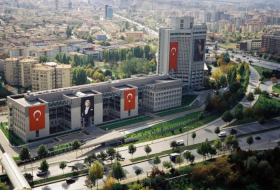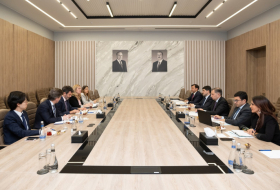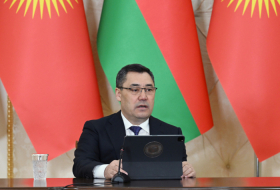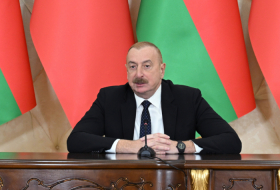- As far as I know, in recent years Azerbaijan has been rapidly modernizing the material and technical base of its Armed Forces: it buys the latest weapons, drones and other equipment. And your army has significantly strengthened, has become more combat-ready and powerful compared to those years when the Karabakh war was going on. According to the Global Firepower index providing a comparison of the military strength of particular countries Azerbaijan is listed at 50 (above Georgia, Belarus and Armenia). The top 5 countries are the USA, Russia, China, India and Great Britain. Poland stands at 16.
Anticipating your next question regarding the Karabakh conflict, I do not believe that a big war can begin between Azerbaijan and Armenia. The military way is not an option, it will lead to numerous losses on both sides. We need to continue the dialogue in this direction.
- Which types of new armaments can Poland interest Azerbaijan with?
- Polish defence industry produces quite a range of sophisticated systems. The world class systems are, among others, radars, drones, short range anti-aircraft rockets, infantry fighting vehicles, fire control systems, night vision goggles, cameras, etc. Warsaw produces Warmate kamikaze drones. Ukraine and other countries have already included this type of weapons into their arsenal. A good place to see the potential of Polish defence industry is the International Defence Industry Exhibition organized yearly in Kielce (Poland), which is one of the largest events of that kind in Europe with over 600 companies from nearly 30 countries present.
- Most EU countries signed the charter documents for “Permanent Structured Cooperation in Defence” (PESCO) recently. Most the media outlets have been calling this a step towards establishing an EU army, which has been initiated by Germany and France. Why are Berlin and Paris promoting this idea and how real is it?
- According to the Lisbon Treaty ‘these member states whose military capabilities fulfil higher criteria and which have made more binding commitments to one another in this area with a view to the most demanding missions shall establish permanent structured cooperation’. Therefore PESCO is not a prelude to a “European Army”, it is only a framework for closer cooperation in military area of countries with similar views on security and possible joint missions. Nevertheless, the idea of a European Army crops out quite often despite the fact that it cannot be fully implemented as long as the European Union is not a state, with the government which has an army as its instrument of defence policy.
- Do you think Europe needs its own army, which will not be subjected to NATO?
- EU definitely needs to have some military capabilities, but not as an instrument of common defence (EU is NOT a military alliance nor a common security system because in the EU we have countries which are very fervently neutral like Ireland). What the European Union needs is a set of military units which could be used for peacekeeping or humanitarian missions like the missions EU has carried out in the past, such as Chad, Timor, Balkans, etc.
- The armaments reserves and the number of rotational troops of the USA have once again increased in Europe after the Ukrainian crisis. There are US arms and military equipment depots in Netherlands and Germany and another one is expected to open in Belgium soon. Moreover, this summer the foreign media outlets circulated a document that the European body of the US Army Corps of Engineers has announced a tender on developing a project design for defence facilities at the Polish airbase in Central Poland. Why and what exactly is the US Army going to build in the Polish province?
- It is true, that as a result of the Ukrainian crisis and strong demands from Central European allies US increased its military presence in Europe. What is important to notice is that after the end of the Cold War US almost entirely withdrew its forces from Europe. It is enough to say that US has only 2 brigades on European soil, and now it will have 3 which is still a rather symbolic quantity. To secure the efficient redeployment of support units to the Eastern part of NATO in case of need the infrastructure in these countries has to be developed and upgraded. This is nothing new, the program of enhancement of infrastructure goes on from the first days after NATO's accession of CEE countries.

- A video has been circulated in the internet, which demonstrated the Iskander-M short-range missile system in action. The military-political blocks at NATO are rather concerned with its capacities. Popularmechanics.com reports that the missile would have enough range to strike targets across the NATO alliance’s eastern edges, threatening Poland and the Baltic countries. Do you think the technical specs of the missile can allow it to strike targets in Poland and Baltic countries? Which strategic weapons can NATO and Poland use as a response to the Iskander? And finally, what does the USA have to match the Russian Iskander?
- It is quite clear that Iskander-M missile could hit the targets in the whole Eastern NATO area. The question remains what the range of this weapon is (there are good reasons to assume that it exceeds the limit 500km which would be the breach of the INF treaty!). After the end of the Cold War USA and other NATO countries got rid of similar systems, so now we do not have anything like the Iskander. What we have in our collective arsenal is air-launched missiles (Poland has already bought such systems) with a comparable range and destructive power. At the same time a very sophisticated air defence system is going to be acquired by Poland which would be capable to intercept Iskander missiles.
- How do you currently assess the Balkan situation, with conflicts now and again. Is another war in the Balkans possible?
- Situation in the Balkans is still not 100% stable, but the European Union is very active in the area. The prospect of joining the EU is a very mitigating factor so the situation in the area should not escalate to a major conflict and the EU should be able to manage if a crisis arises.
Seymour Mammadov
More about: #Poland








